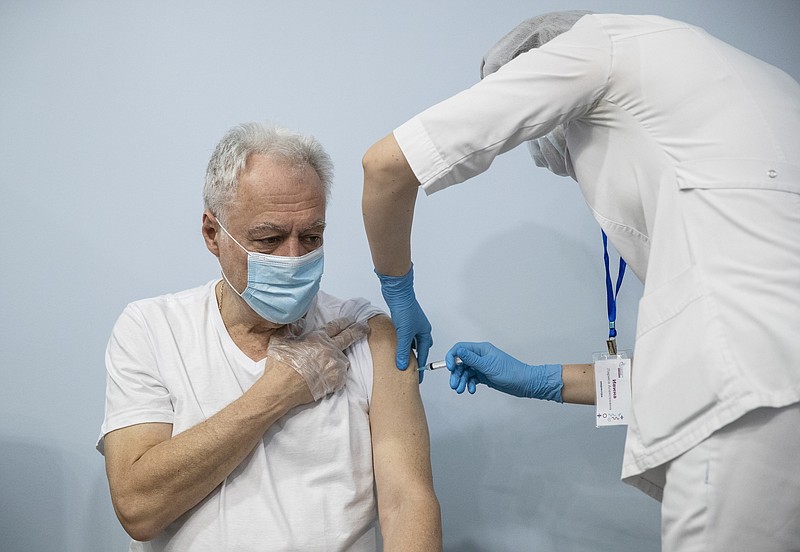The next phase of COVID-19 vaccine eligibility in Missouri begins Monday, and local health officials are working to clarify who will be considered eligible.
The state's covidvaccine.mo.gov website outlines specific information about who qualifies in the upcoming Phase 1, Tier 3. In particular, this group includes people who work in critical infrastructure areas.
The first group is education personnel, specifically those who work with pre-K through 12th-grade students.
Next are those who work in child care facilities licensed to provide basic care for children.
Also included in this new eligibility group are food production workers in processing facilities, as well as grocery store and convenience store workers. Elected officials from local through state levels that are considered vital to keep government operations running are also in this group. Transportation officials are also part of this new group.
The Missouri National Guard will host another COVID-19 vaccination event next Friday in Cole County at The Linc in Jefferson City. Health officials anticipate 2,000-2,300 people will receive Pfizer vaccinations during this event, with the second dose to be administered April 9.
Registration is available through the Missouri COVID-19 Vaccine Navigator at covidvaccine.mo.gov/navigator.
"Next week there will be appointments available, but we are currently scheduling the educational staffs first to accommodate the schedules at their schools," Cole County Health Department Director Kristi Campbell said Thursday during the county's weekly COVID-19 briefing.
Campbell said health providers are still trying to get vaccine and also supplies are still low, so people should continue to be patient even if they are in an eligibility tier that has been activated.
"These tiers were targeted to get those at the most risk first," Campbell said. "We ask residents to respect those and not try and get in a tier that they aren't qualified for."
Ron Rockwood, Jefferson City Medical Group director of medical services and population health, noted there remains a supply-and-demand issue with COVID-19 vaccine in the region, "so we're not able to offer which vaccine you want to choose from. The best vaccine is the one you can get the soonest."
Rockwood said JCMG has started giving the Johnson & Johnson vaccine and is working to dispel misconceptions about it.
"The J&J vaccine can't make anybody sick," he said. "The technology used to develop it has been around for many years and was used to develop the Ebola vaccinations. It can't give you COVID, and it can't give you a cold."
Dr. Lenora Adams, regional vice president of medical affairs for SSM Health, which operates St. Mary's Hospital in Jefferson City, said she has received questions from people who have already gone through the vaccination process about when they would need to be vaccinated again.
"They have been vaccinated for three to six months, and they wonder if they should prepare to be revaccinated - and the answer is we don't know yet," Adams said. "We haven't had enough time pass to know exactly how long those vaccinations are going to provide immunity."

